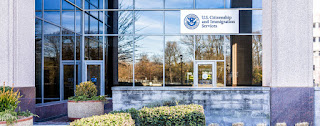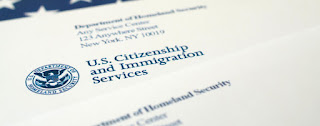Introduction
In this post, we will discuss recent immigration- and travel-related developments regarding the ongoing coronavirus outbreak.
China Travel Restrictions On Account of Coronavirus Remain in Effect
On January 31, 2020, President Donald Trump ordered temporary travel restrictions on foreign nationals who had been in China in the previous 14 days due to the ongoing coronavirus outbreak, which originated in China. The China travel restrictions due to the coronavirus remain in effect. We discuss these restrictions in a separate post [
see article]. Please note that the restrictions do not apply to Hong Kong or Macau.
U.S. citizens are not subject to restrictions on their ability to return from China. Certain foreign nationals are also not subject to the coronavirus-related restrictions on entry. However, individuals returning from China are only allowed to fly to certain airports, will be screened upon return, and may be subject to restrictions on movement for 14 days after returning. For more details, please see the following information from the Centers for Disease Control [
PDF version].
New Entry Restrictions Due to Coronavirus for Individuals Recently Present in Iran
On February 29, 2020, President Donald Trump published a new proclamation adding additional travel restrictions to Iran based on the coronavirus outbreak there [
PDF version]. Iranian nationals are already subject to significant restrictions on entry to the United States as part of prior proclamations unrelated to the coronavirus outbreak [
see article]. The prior restrictions ban the entry of Iranian nationals as immigrants and in most nonimmigrant categories absent waiver.
The coronavirus-related entry restrictions for Iran cover foreign nationals who were physically present in the Iran in the 14-day period preceding their entry or attempted entry into the United States. The Iran coronavirus entry restrictions do not apply, however, to the following classes of foreign nationals:
- U.S. lawful permanent residents;
- The spouse of a U.S. citizen or lawful permanent resident;
- The parent or legal guarding of a U.S. citizen or lawful permanent resident, provided that the U.S. citizen or lawful permanent resident is both unmarried and under the age of 21;
- The sibling of a U.S. citizen or lawful permanent resident, provided both are unmarried and under the age of 21;
- The child, foster child, or ward of a U.S. citizen or lawful permanent resident, or the prospective adoptee seeking to enter the United States under the IR-4 or IH-4 visa classifications;
- Any alien traveling at the invitation of the United States Government for a purpose related to containment or mitigation of the coronavirus;
- Any alien traveling as a C-1, D, or C-1/D nonimmigrant visa-holder as a crewmember or any alien otherwise traveling to the United States as air or sea crew;
- Any alien seeking entry or transiting the United States as an A-1, A-2, C-2, C-3 (as a foreign government official or immediate family member of an official), E-1 (as an employee of TECRO or TECO or the employee's immediate family members), G-1, G-2, G-3, G-4, NATO-1, NATO-2, NATO-3, NATO-4, or NATO-6 (or seeking to enter as a nonimmigrant in one of those NATO categories);
- Any alien whose travel falls within the scope of section 11 of the United Nations Headquarters Agreement;
- Any alien whose entry, in the determination of the Secretary of Health and Human Services, through the Centers of Disease Control Director or his designee, would not pose a significant risk of introducing, transmitting, or spreading the coronavirus;
- Any alien whose entry would further important United States law enforcement objectives, as determined by the Secretary of State, the Secretary of Homeland Security, or their respective designees, based on the recommendation of the Attorney General or his designee;
- Any alien whose entry would be in the national interest of the United States, as determined by the Secretary of State, the Secretary of Homeland Security, or their designees;
- Members of the U.S. Armed Forces and spouses and children of the U.S. Armed Forces.
The proclamation does not impair the ability of any foreign national to apply for asylum, withholding of removal, or protection under the Convention Against Torture.
It is worth noting that returnees from Iran, similarly to returnees from China, may be subject to monitoring or quarantine, at the discretion of responsible government agencies.
Travel Advisories and Possible Restrictions in the Future
At the time of the writing of this article, South Korea and Italy have the most ongoing coronavirus cases outside of China and Iran.
The White House has advised against travel to Italy and South Korea. The U.S. Department of State (DOS) has issued its highest level “do not travel” warning to Daegu, South Korea, and level 3 travel warnings to the rest of South Korea and all of Italy.
President Trump has stated that restrictions on entry for foreign nationals who have recently been to South Korea or Italy may be necessary in the near future. Furthermore, he has suggested that the United States may also find it necessary to close the Southwest border with Mexico.
We will update the website with more information as it becomes available. For the time being, individuals should avoid travel to South Korea and Italy if possible, and stay cognizant of the Department of State's and Center of Disease Control's guidance regarding travel to other parts of the world. Nonimmigrant travelers especially should be aware of the possibility that South Korea and Italy may soon be subject to similar restrictions as China and Iran due to the ongoing coronavirus outbreak.
Conclusion
Individuals considering travel abroad should continue to monitor relevant travel advisories from the U.S. Government. Future entry restrictions are possible depending on the course of the coronavirus worldwide. We will update the website with more information as it becomes available.
Please visit the
nyc immigration lawyers website for further information. The Law Offices of Grinberg & Segal, PLLC focuses vast segment of its practice on immigration law. This steadfast dedication has resulted in thousands of immigrants throughout the United States.



